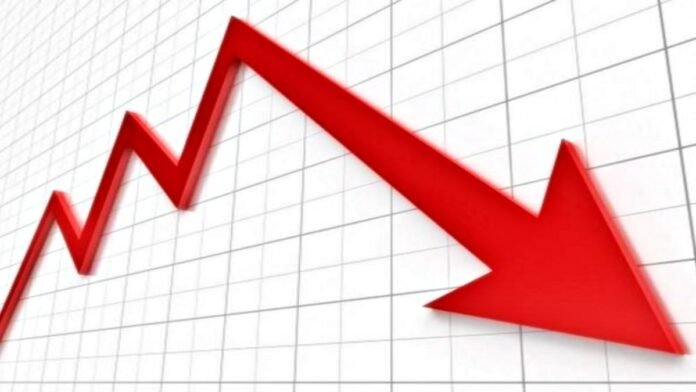
Key Points:
- Indian stock markets opened strong on May 8 but plunged sharply after reports of Indian drone strikes in Pakistan, erasing ₹5 lakh crore in investor wealth within minutes.
- The Sensex closed down 412 points (0.51%) at 80,335, and the Nifty fell 141 points (0.58%) to 24,274, with heavy selling in finance, auto, and consumer stocks.
- Panic selling was driven by fears of war after news of escalating India-Pakistan border tensions and retaliatory actions.
- Pakistan’s KSE-100 index crashed over 7%, triggering a trading halt after a 7,335-point drop-the steepest single-day fall since 2008.
- While Indian markets showed resilience and stabilized by closing, Pakistan’s stock market remains in turmoil, reflecting deep investor anxiety and economic fragility.
New Delhi: Indian and Pakistani stock markets faced a wave of panic selling on May 8, as geopolitical tensions soared following reports of Indian drone attacks on major Pakistani cities in the wake of Operation Sindoor.
Indian Markets: Sudden Selloff, Massive Wealth Erosion
Dalal Street opened on a positive note, but the mood quickly soured as news broke of fresh military escalations across the border. Within minutes, the BSE market capitalization dropped from ₹423.5 lakh crore to ₹418.1 lakh crore, wiping out ₹5 lakh crore in investor wealth. The Sensex ended the day down 412 points at 80,335, while the Nifty fell 141 points to 24,274. Key laggards included Shriram Finance, Eternal, M&M, Tata Consumer, and Adani Enterprises, while HCL Technologies, Kotak Mahindra Bank, Titan, Axis Bank, and Coal India posted gains.
Market experts attributed the sharp decline to fears of a potential war, with the VIX volatility index spiking and the rupee suffering its steepest single-day fall in over two years.
Pakistan’s Stock Market: Historic Crash and Trading Halt
The impact was even more severe in Pakistan. The KSE-100 index crashed over 7%-a 7,335-point plunge-forcing a halt in trading. This marks the steepest single-day decline since 2008, coming on the heels of a 6% drop the previous day. The selloff was triggered by news of multiple drone strikes and explosions in cities like Karachi and Lahore, as well as ongoing fears of further escalation.
Pakistan’s market has lost nearly 10% of its value in just four days, reflecting deep investor anxiety and the country’s economic fragility amid heightened military tensions.
Expert Analysis: Why the Markets Reacted
- Geopolitical Risk: The prospect of open conflict between two nuclear-armed neighbors rattled investors, prompting a rush to sell risk assets.
- Panic Selling: Both institutional and retail investors offloaded shares amid uncertainty, with Indian markets rebounding somewhat by close, while Pakistan’s bourse remained in crisis.
- Economic Impact: In Pakistan, the crash was compounded by thin trading volumes and foreign investor flight, underscoring vulnerabilities in the financial system.
The escalating conflict between India and Pakistan, marked by drone attacks and retaliatory strikes, triggered a sharp, sudden crash in both countries’ stock markets on May 8. While Indian markets stabilized after the initial shock, Pakistan’s stock exchange suffered a historic rout, highlighting the economic risks of geopolitical instability in the region.
















































